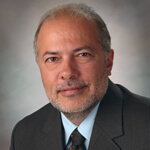
Area residents ages 18 to 80 who have suffered depression in the last two years, but are not currently depressed or taking an antidepressant, are encouraged to ask about a new study at the Behavioral Wellness (BeWell) Center, a clinical trials center of the department of psychiatry at the Health Science Center.
The new study, conducted at the Health Science Center and the University of Arizona, aims to improve scientists’ understanding of the genetic basis of depression, which is estimated to affect more than 40 million Americans.
“We are evaluating several candidate genes,” said principal investigator Pedro L. Delgado, M.D., the Dielmann Professor and chairman of the department of psychiatry at the Health Science Center. “Studies such as this could lead to development of a depression screen to not only predict future episodes in patients, but ultimately to predict which people are at risk of becoming depressed, long before they have their first episode.”
The last point is important because in most cases, depression becomes a chronic disease, Dr. Delgado said. Individuals who suffer one depressive episode have a 50 percent chance of having another. The risk increases to 70 percent after two episodes and 90 percent after three. “We need to start with treatment earlier, because we think early, aggressive treatment of depression might reduce the likelihood it will become chronic,” Dr. Delgado said.
The BeWell Center seeks to recruit 52 patients with a history of depression. If interested, call (210) 562-5400. In addition to not being currently depressed or on antidepressants, eligible study participants should have at least one first-degree relative (a parent, brother or sister, or a child) who also suffers from depression. Participants may receive up to $475 compensation, and all information is confidential.
Dr. Delgado said the formerly depressed patients who enroll in the study have important genetic differences from non-susceptible individuals. One of the genes under study is the one that encodes a “transporter” or “re-uptake pump” for the neurotransmitter serotonin. This gene is found in two common versions in people – a long version and a short version. Research suggests that the short form of this gene, called the “s” allele, causes less of the transporter to be made. “We believe people with two short copies may be more likely to develop chronic depression, but that is yet to be shown,” Dr. Delgado said.
Health Science Center psychiatry researchers are working diligently to develop new treatments for patients with disorders including depression, adult attention deficit disorder and narcotic addiction, said John D. Roache, Ph.D., scientific director of the BeWell Center. “It can be difficult to motivate people to participate in a study like this one, which offers no direct benefit to them,” Dr. Roache said. “We are looking for people who are inclined to support medical research because of the value it has for humanity in the future. Because there is no direct benefit to participants of this study, we are totally dependent on their generosity.
“We especially appeal to professionals at the Health Science Center, the hospitals and other institutions of the South Texas Medical Center, who are keenly aware of research and its translation to clinical practice.”
Dr. Delgado is the principal investigator for the San Antonio portion of the study, which is funded at $1.25 million by the National Institute of Mental Health. Dr. Delgado joined the Health Science Center in 2005 from the Case Western Reserve University School of Medicine. He also serves as associate dean for faculty development and professionalism in the Health Science Center School of Medicine.
Christopher L. Wallace, M.D., medical director of the BeWell Center, is the co-investigator of the genetic risk of depression study in San Antonio.

